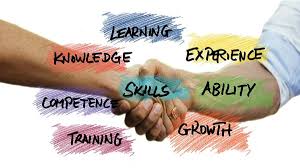Top Soft Skills for International Careers
In today’s interconnected world, soft skills have become as crucial as technical skills for success in international careers. These skills, often referred to as interpersonal or people skills, encompass a range of abilities that enable individuals to effectively communicate, collaborate, and navigate diverse work environments. As globalization continues to shape industries, professionals must equip themselves with the right soft skills to thrive in multicultural settings. Here are the top soft skills essential for international careers.
1. Communication Skills
Effective communication is at the heart of any successful career, particularly in an international context. Professionals must be able to convey their ideas clearly and concisely, whether in person, over email, or through virtual meetings. Understanding nuances in language and culture is also vital; this includes being aware of different communication styles and non-verbal cues. For instance, while direct communication may be valued in some cultures, others may prioritize diplomacy and indirect expression. Mastering these aspects helps in building strong relationships with colleagues and clients from diverse backgrounds.
Top career counseling for students in North Delhi: Rohini, Pitampura, and Shalimar Bagh
2. Cultural Intelligence (CQ)
Cultural intelligence is the ability to relate to and work effectively across cultures. This skill involves understanding and respecting cultural differences, adapting behaviors and communication styles accordingly, and building rapport with individuals from various cultural backgrounds. For example, professionals working in multinational companies need to appreciate local customs and etiquette, which can significantly affect teamwork and negotiations. Developing cultural intelligence can lead to more effective collaborations and increased success in international markets.
 3. Emotional Intelligence (EI)
3. Emotional Intelligence (EI)
Emotional intelligence, or the ability to recognize and manage one’s emotions and those of others, plays a pivotal role in international careers. Professionals with high EI can empathize with colleagues, handle conflicts gracefully, and create a positive work environment. This skill is especially important in diverse teams, where differing perspectives and emotions can arise. Cultivating emotional intelligence helps individuals navigate challenges and build stronger interpersonal relationships, which are critical for effective collaboration across borders.
Best career counseling services in South Delhi: Hauz Khas, Saket, and Greater Kailash
4. Adaptability and Flexibility
The ability to adapt to changing situations and environments is essential for international careers. This includes being open to new ideas, adjusting to different work practices, and responding positively to unforeseen challenges. For instance, working across different time zones or adapting to varying work styles requires flexibility and resilience. Professionals who can embrace change and remain composed under pressure are more likely to succeed in dynamic international settings.
5. Problem-Solving Skills
In a global work environment, professionals often encounter complex challenges that require innovative solutions. Strong problem-solving skills enable individuals to analyze situations critically, think creatively, and implement effective strategies. This includes the ability to gather relevant information, evaluate options, and make informed decisions. Collaborative problem-solving, which involves drawing on the expertise of diverse team members, is especially valuable in international settings where varied perspectives can lead to unique solutions.
6. Teamwork and Collaboration
International careers frequently involve working in teams with members from different cultural backgrounds. The ability to collaborate effectively is essential for achieving common goals. This means being able to listen actively, respect diverse opinions, and contribute constructively to group discussions. Successful teamwork also requires individuals to be open-minded and willing to compromise, fostering an inclusive environment where all team members feel valued and motivated to contribute.
7. Networking Skills
Building and maintaining professional relationships is vital for career advancement, particularly in an international context. Networking skills involve the ability to connect with individuals across cultures, industries, and geographies. This includes attending conferences, joining professional organizations, and utilizing social media platforms like LinkedIn to expand one’s professional network. Effective networking can lead to new opportunities, partnerships, and insights that can significantly impact one’s career trajectory.
8. Leadership Skills
Even if not in formal leadership positions, professionals must exhibit leadership qualities in international careers. This includes the ability to inspire and motivate others, provide guidance, and foster a collaborative team environment. Strong leaders also demonstrate accountability, integrity, and vision, qualities that resonate across cultures. Developing leadership skills is essential for those aspiring to take on managerial roles or lead international projects.
Best career counseling services in West Delhi: Janakpuri, Rajouri Garden, and Punjabi Bagh
9. Time Management and Organization
Effective time management is crucial in any career, but it takes on added significance in international roles, where professionals must coordinate tasks across different time zones and cultures. Being organized helps individuals prioritize responsibilities, meet deadlines, and maintain a balanced workload. Utilizing tools like project management software can enhance efficiency and ensure that team members are aligned and informed.
10. Negotiation Skills
Negotiation is an integral part of many international careers, whether in sales, diplomacy, or project management. Strong negotiators can advocate for their interests while finding common ground with others. Understanding cultural differences in negotiation styles—such as direct versus indirect communication—can significantly enhance outcomes. Professionals who master negotiation skills can navigate complex situations and forge successful partnerships.
Best career counseling services in East Delhi: Laxmi Nagar, Preet Vihar, and Mayur Vihar.
 Conclusion
Conclusion
In conclusion, as globalization continues to shape the professional landscape, soft skills have become essential for success in international careers. By developing skills such as communication, cultural intelligence, emotional intelligence, and adaptability, individuals can position themselves for growth and advancement in diverse and dynamic work environments. Employers increasingly seek professionals who can navigate the complexities of the global marketplace, making these soft skills not just valuable but essential for a successful international career. Investing in these skills will not only enhance personal development but also contribute to a more inclusive and collaborative professional world.









